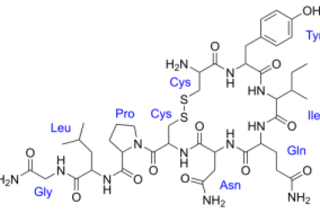Oxytocin, the "moral molecule". Image by Calvero c/o Wikimedia Commons Oxytocin has perhaps the best reputation of any molecule on the planet. In a culture of chemophobia where any compound is fair game for attack, oxytocin has been heralded as "The Source of Love and Prosperity". If you listen to the tales, this "moral" molecule—the "trust hormone"—is the "most amazing molecule in the world," and is your one-stop shop for love and happiness. All you have to do is give someone a hug, and your brain will be flooded with the magic stuff. But as many (most notably Ed Yong) have pointed out, oxytocin isn't the sweet compound we're told it is. Sure, it has been associated with generosity, desire, and trust, but oxytocin has a dark side, too. It can increase envy and gloating, promote cliques, and even decrease cooperation. Now, a new study published today in PNAS adds ...
Trust the "trust hormone"? Oxytocin can increase deceit
Discover how the oxytocin moral molecule influences both trust and group-serving dishonesty in surprising ways. Read more!
More on Discover
Stay Curious
SubscribeTo The Magazine
Save up to 40% off the cover price when you subscribe to Discover magazine.
Subscribe













